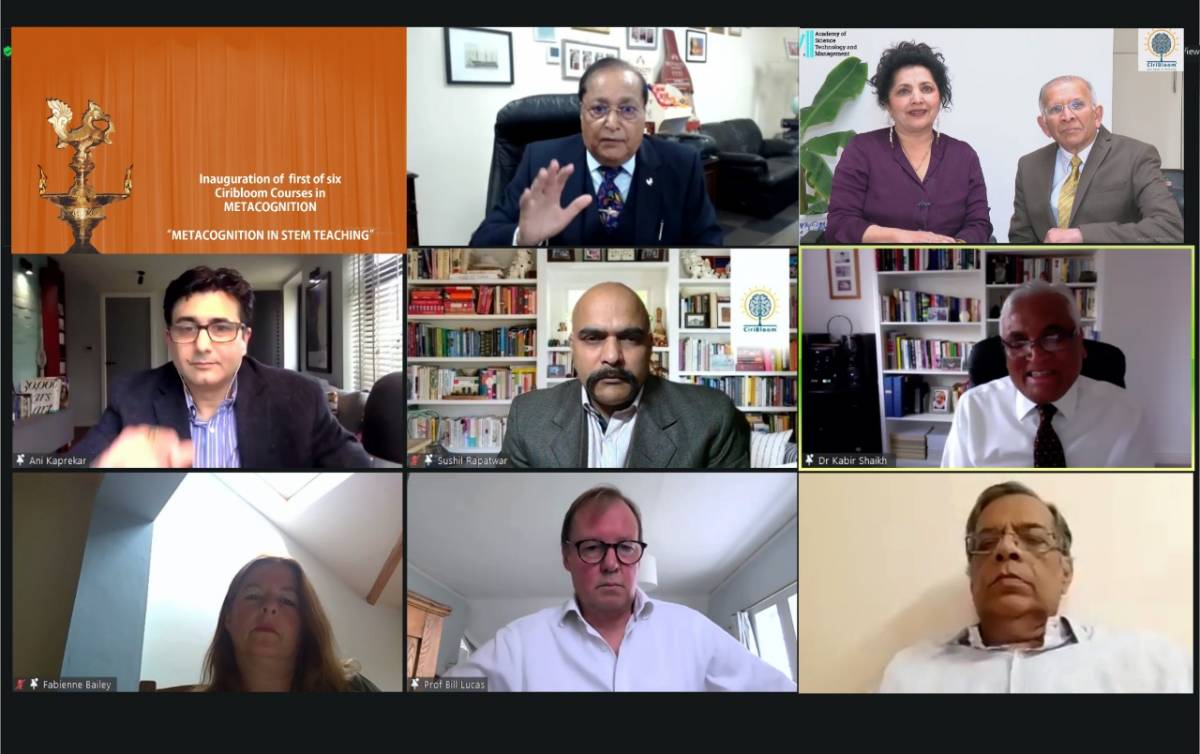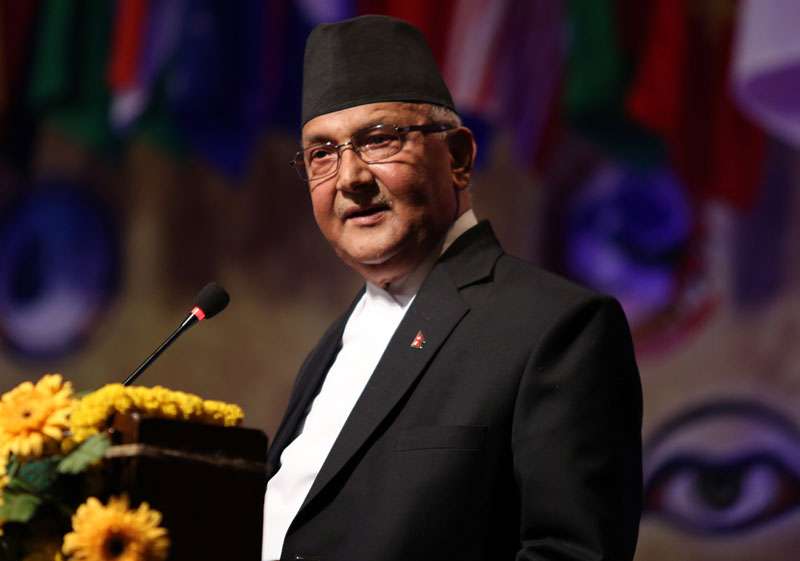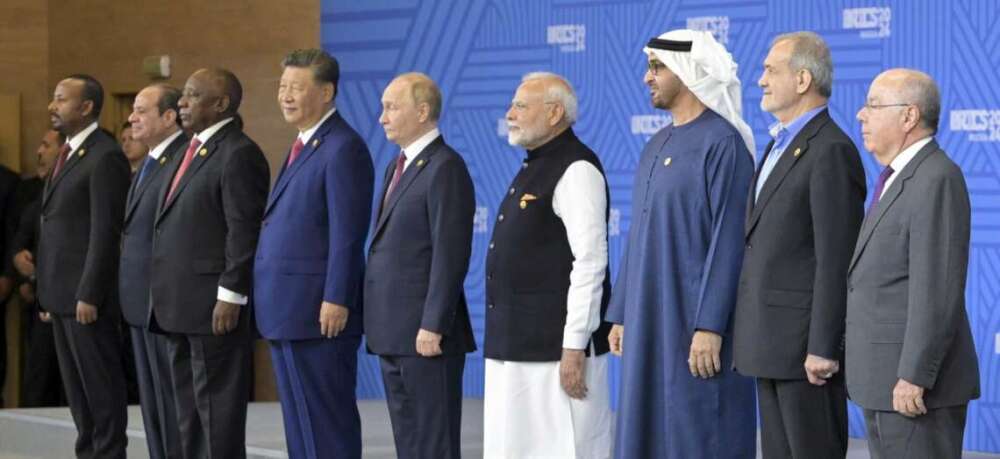CiriBloom ’s global launch on May 11, 2021 explores new approach to teaching, teaching methods and rethinks about current educational system models. Padma Shree Sudha Murthy’s presence at launch added weightage to the process, reports Rahul Laud
Those who hail from India and who believe in ancient wisdom are aware that Indian philosophy has encouraged metacognition technique process in the educational field. The concept of ‘Ishta devata’ is well known to Indians. The power to think, thinking ability, the power to question has always been in Indian scriptures and it’s the essence of human life. Its essence is universal and cherishes human values. It’s not a monopoly of any ideology but has been a way of Indian life. More than where to learn and what to learn, how to learn is a fundamental question that CiriBloom raises and brings it forth to the world in an aggressive way.
With this commitment, discipline, science and ideology, CiriBloom’s launch emphasised the fact that future of Education is in the hands of Metacognitive teachers. Metacognition – A new dawn in thinking is an innovative concept and a continuous professional development (CPD) course in STEM (Science Technology Engineering Math) subjects for primary and secondary school teachers offered by The Academy of Science Technology and Management Limited (ASTML), UK.
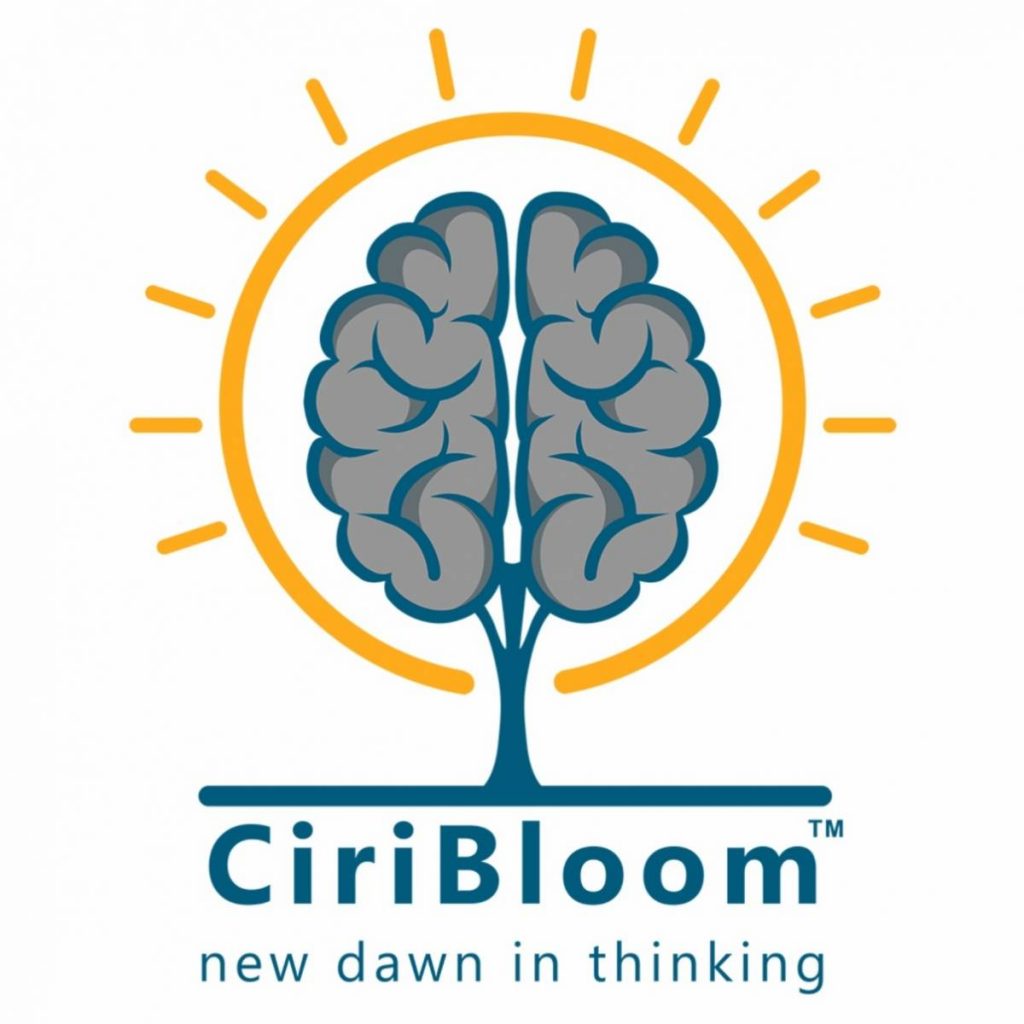
Metacognition means thinking about how we think. This course on metacognition in STEM is one of the six courses that ASTML will be bringing to the global schools with the other courses (languages, Coding, Computer Graphics, 3D Design, Game Design) to be launched in October 2021 informed Dilip and Madhavi Amdekar pioneers of the project and directors of ASTML.
Lord Rami Ranger (Entrepreneur & Philanthropist), UK, inaugurated the online course hosted on https://www.ciribloom.co.uk. He mentioned “that these metacognition courses will enable the teachers to develop creative and critical thinking to get the best out of their students. He hailed this as a wonderful example of Indo-British collaboration with the course being developed by leading authorities in metacognition.”
Padma Shree Bob Blackman MP (Indo-British All-Party Parliamentary Group) guest at the launch appreciated the focus on science and STEM related subjects in India which he had noticed during his previous visits. He acknowledged that ‘’different students learn in different ways’’ and stressed that ‘’the teaching has to be agile and should adapt to each students learning style and speed.’’ He concluded by pointing out that there will be much easier exchange of students between the UK and India as per the recent trade talks held between the two countries. He also assured and promised that visas for students would be eased and students from India would be encouraged to visit UK to study.
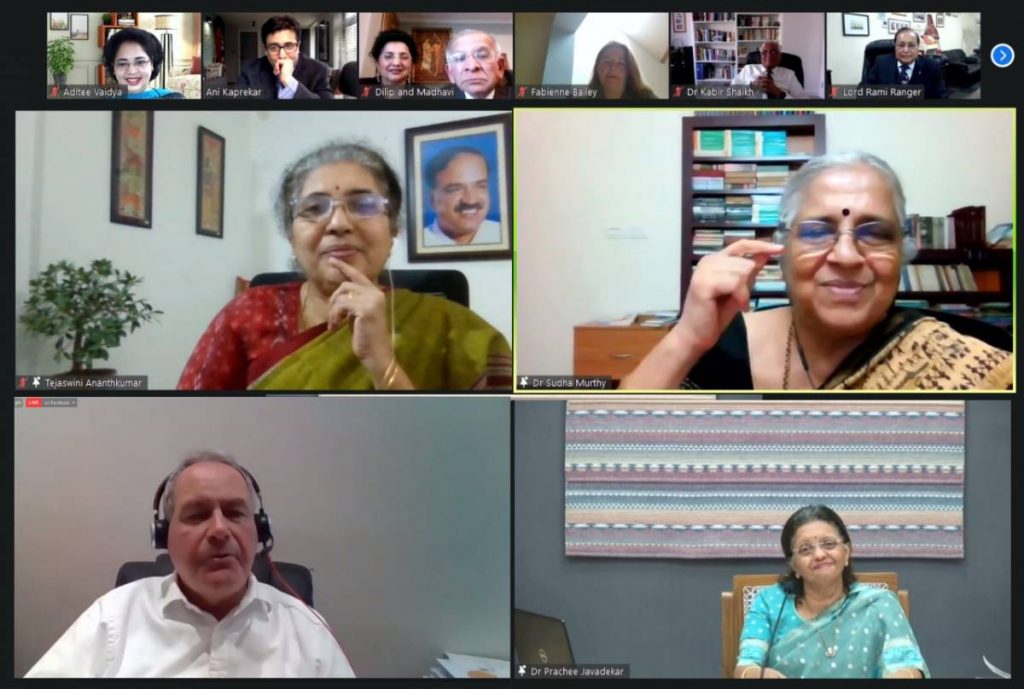
During the event’s panel discussion with Dr. Prachee Javadekar (Academician, Researcher Advisor Indira Group) and Dr. Tejaswini Ananthkumar (Scientist & Activist), Padma Shree Sudha Murthy (Founder & Trustee Infosys Foundation) observed that every project leader ‘’needs to have a vision and also be a good worker.’’ Murthy made a poignant remark that ‘’except mother’s love nothing is free in life.’’ Her constant engagement with youngsters is her reservoir of energy, Murthy humbly admitted and shared ‘’all projects are not sustainable. Some need patient waiting. ’’
Eminent educationists UK based, Professor Bill Lucas (Professor of Learning and Director of the Centre for Real-World Learning) and Dr Lynne Bianchi (Director, Science and Engineering Education Research and Innovation Hub), have developed this teachers’ training course to help them understand how to equip their students in critical thinking and measure their cognitive journey through a process of determining the key thinking skills, the habits of mind and pedagogies using a range of tools.
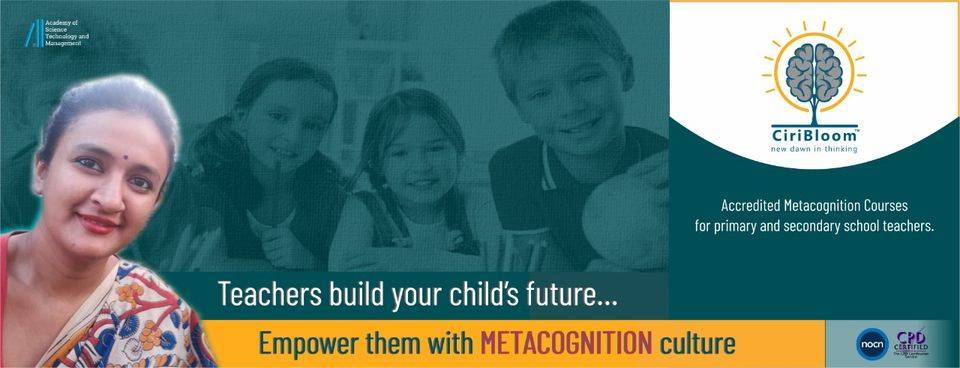
The second panel discussion was on the implementation methods of promoting thinking habits and measuring students’ progress in thinking and self-reflecting by an eminent set of panellists comprising Dr. Kabir Shaikh CBE (Ex-Director of Education, UNESCO), Dr. Vasant Kalpande (Former Director of Education, Government of Maharashtra.) and Fabienne Bailey Group Director: One Awards, International and Culture at NOCN Group along with Lynne Bianchi, course designers and Sushil Rapatwar, Chief Operating Officer, CiriBloom.
It was an insightful launch hosted by the UK‘s one of the finest compere, Business Coach, s strategist and Consultant Ani Kaprekar. The event t engaged hundreds of audience from over 15 countries and over 40 cities across the globe. Key discussion happened on topics like a global perspective on the education systems and an understanding of metacognition with the long-term benefits of critical thinking habits.
According to Dilip Amdekar, “This initiative is aligned to the strategic partnership of India-UK in the context of education, research and innovation wherein both the Governments emphasize a shared commitment for a promising new era.” “This quality approved, endorsed and affordable online course of Metacognition in STEM Education would be of the duration of 50 hours and can be completed by teachers any time within the 6 months of registration,” Dilip added.
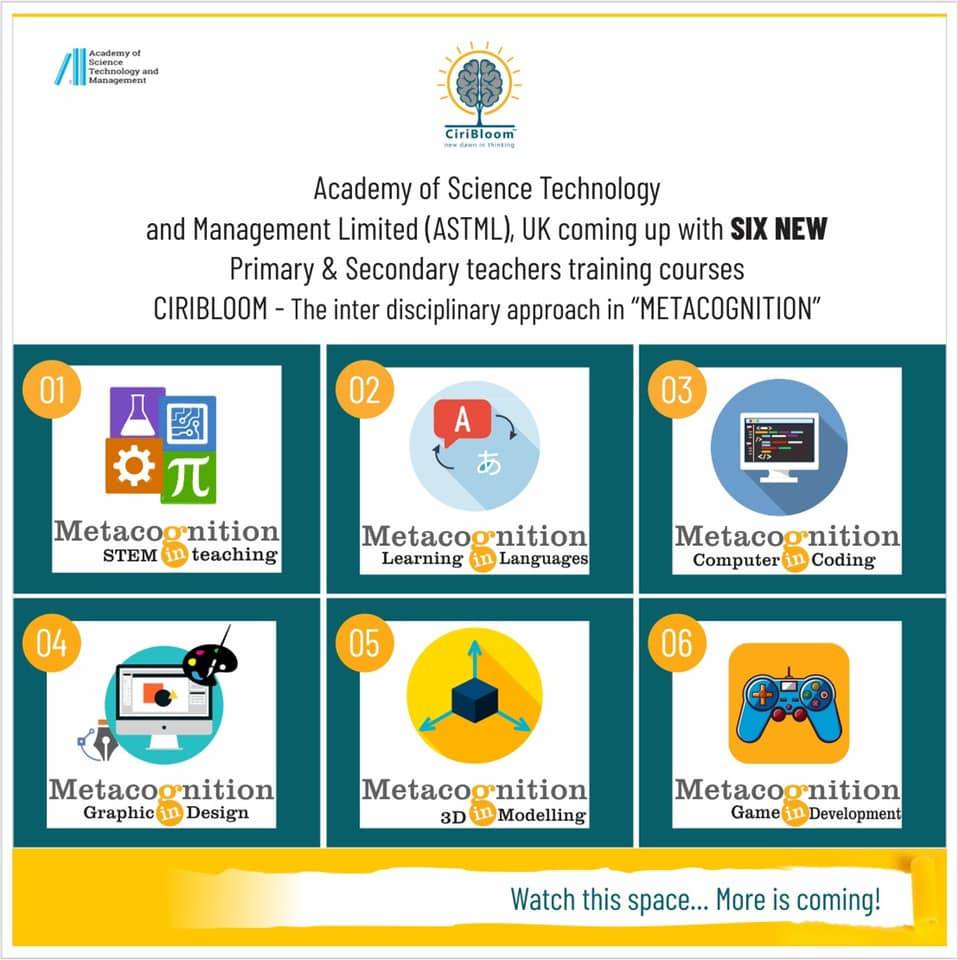
In the Indian context one has seen the education system developing and changing over the years. From the matriculation system during the British era to the 11+4 then in 1975 the first batch of 10+2+3 was born and the Kothari Commission report was read as the Bible. Very few schools across India were able to execute the Commission’s objectives. Interestingly India has several models today. There are State Boards, CBSE, ICSE, and also the fashionable International Schools offering International Baccelorate system. There are also Vedic schools, Gurukools and also several other schools that offer a broad mix of vocational and educational teachings.
With online education being the ‘new normal’ there would be various challenges faced by the teachers and students both. In light of this reality CiriBloom would definitely tread on a challenging path especially in India. In the late 70s early 80s Dr Prof AR Kamat’s Marathi book “”Bharatiya Shikashanchi Waatchal’’ did throw light on socio economic aspects of education and signifies the values of education in one’s mother tongue that co-linked with the ability to think .
Meta cognition is definitely a progressive way forward. There needs to be a collective political will to execute.
For more registration and further details please visit https://www.ciribloom.co.uk.
Also Read – GMBHCA to host digital Baisakhi soon


